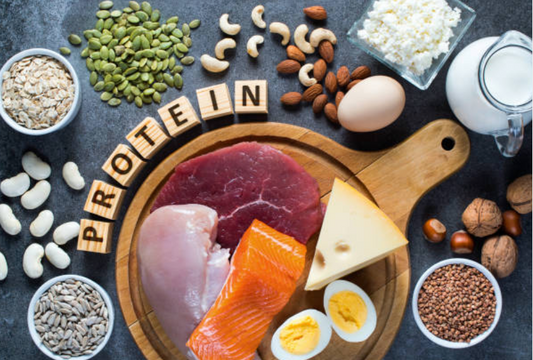Protein is a crucial macronutrient that supports various bodily functions, ranging from muscle repair to hormone production and immune function. Among the sources of protein, those considered "complete" are of paramount importance, as they provide all nine essential amino acids that our bodies cannot produce.
As we age, our ability to assimilate protein diminishes. This decrease in protein digestion and absorption can escalate the risk of sarcopenia, a condition characterised by the loss of muscle mass and strength. Consequently, older adults might require higher-quality protein sources to maintain their muscle mass and overall health.
To combat muscle loss and prevent aging decline, sufficient protein intake is essential. The general recommendation for adults is about 0.8 grams of protein per kilogram of body weight. However, most of us likely need more like 1.2 – 1.6 grams per kilogram. This increased requirement helps counteract the reduced efficiency in protein utilisation and maintain muscle protein synthesis rates.
Animal-based proteins, such as those from meat, fish, dairy, and eggs, are superior due to their complete amino acid profile. These sources contain all essential amino acids in proportions that closely match human needs, making them highly effective for muscle repair and growth.
For instance, a chicken breast provides high levels of leucine, an amino acid that plays a critical role in stimulating muscle protein synthesis. Similarly, dairy products like Greek yogurt or whey protein are excellent options, as they offer rapid digestion coupled with a rich array of essential amino acids.
While plant-based proteins can be beneficial, they often have an incomplete amino acid profile. For example, legumes such as lentils and beans are typically low in methionine, while grains like rice may lack lysine. This necessitates the practice of combining different plant-based proteins to form a complete amino acid profile. Quinoa and soy, however, are exceptions, offering a more balanced amino acid composition.
Plant-based proteins generally require more mindful combinations and higher quantities to meet the required amino acid levels for optimal muscle maintenance, especially in older adults. As they are also substantial sources of carbohydrate, trying to derive adequate protein from these sources will likely result in elevated blood glucose and fat gain.
Complete, high-quality protein intake is fundamental for maintaining muscle mass and preventing aging-related decline. While both animal-based and plant-based proteins offer unique benefits, the unmatched amino acid profile of the former makes it a highly efficient choice, particularly as our bodies' ability to assimilate protein reduces with age. Hence, incorporating a balanced diet rich in diverse, high-quality protein sources—predominantly animal-based, complemented by select plant-based options—ensures robust health and longevity.
The Importance of Complete Quality Protein Intake
























